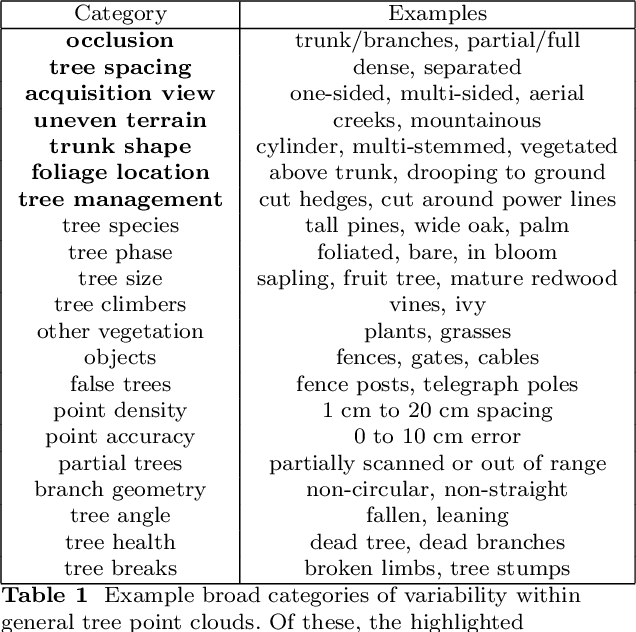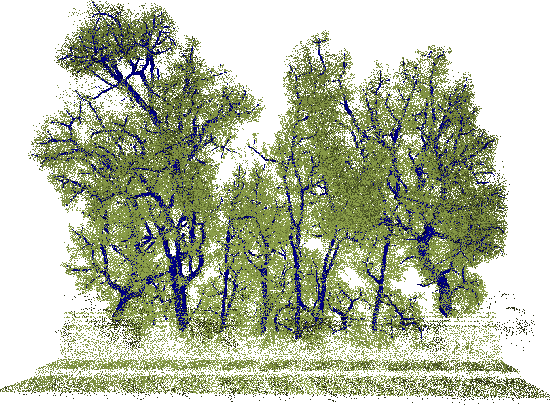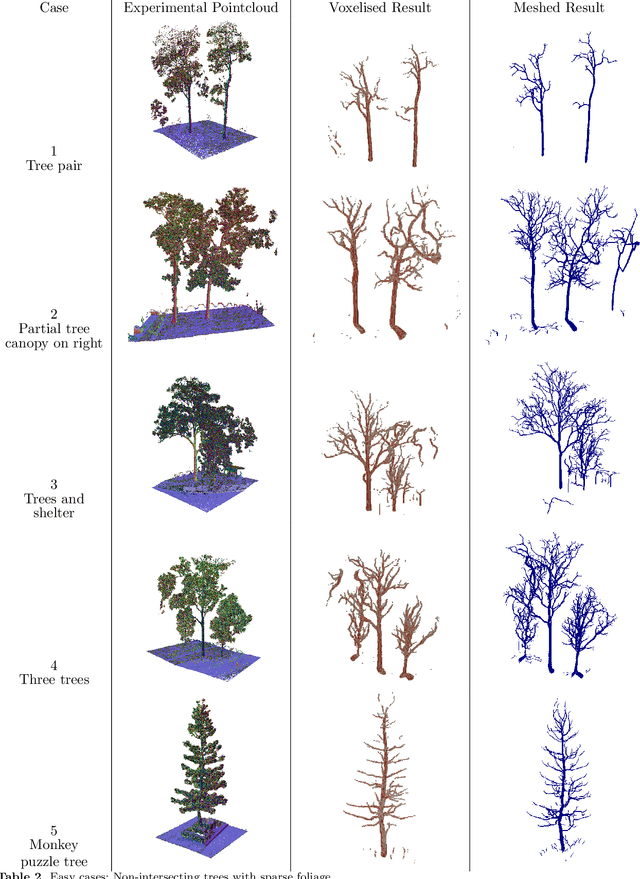Tree Reconstruction using Topology Optimisation
Paper and Code
May 26, 2022



Generating accurate digital tree models from scanned environments is invaluable for forestry, agriculture, and other outdoor industries in tasks such as identifying biomass, fall hazards and traversability, as well as digital applications such as animation and gaming. Existing methods for tree reconstruction rely on feature identification (trunk, crown, etc) to heuristically segment a forest into individual trees and generate a branch structure graph, limiting their application to sparse trees and uniform forests. However, the natural world is a messy place in which trees present with significant heterogeneity and are frequently encroached upon by the surrounding environment. We present a general method for extracting the branch structure of trees from point cloud data, which estimates the structure of trees by adapting the methods of structural topology optimisation to find the optimal material distribution to support wind-loading. We present the results of this optimisation over a wide variety of scans, and discuss the benefits and drawbacks of this novel approach to tree structure reconstruction. Despite the high variability of datasets containing trees, and the high rate of occlusions, our method generates detailed and accurate tree structures in most cases.
 Add to Chrome
Add to Chrome Add to Firefox
Add to Firefox Add to Edge
Add to Edge